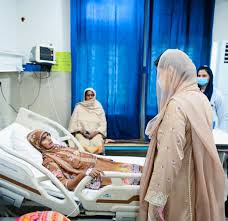Punjab Chief Minister Maryam Nawaz Sharif is receiving strong praise for her government’s governance reforms, which many believe set a fresh benchmark in provincial leadership. Observers say her administration is not only focusing on infrastructure but also placing significant weight on health, service delivery and institutional accountability.
Among the most applauded initiatives is the expansion of healthcare infrastructure across Punjab. Over the past months, the government has started new hospital projects, boosted capacity in existing facilities, and delivered more focused medical services in underserved areas. These efforts are viewed as delivering real, measurable outcomes to the public.
Maryam Nawaz’s prioritisation of regulation and transparency in the health sector also stands out. Her government is reportedly strengthening oversight systems, improving procurement processes, and enforcing stricter standards to ensure medical quality and fair access to essential drugs.
On service delivery, the reforms go beyond hospitals. The CM’s administration is also enhancing preventive healthcare programmes, community outreach, and public-health education, which stakeholders say will improve long-term health outcomes and reduce pressure on tertiary care.
Governance critics acknowledge that lasting success will depend on consistent implementation. The new benchmarks the CM is setting especially in health are ambitious. Realising them fully will require ongoing political will, skilled personnel, and accountable institutions.
But the early signs are promising. By aligning governance reform with public health priorities, Maryam Nawaz’s leadership is sending a clear message: strong, people-focussed public institutions matter. The rest will depend on converting these promising steps into sustained delivery.



Comments (0)
No comments yet. Be the first to comment!
Leave a Comment